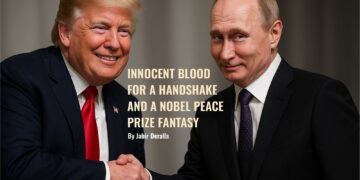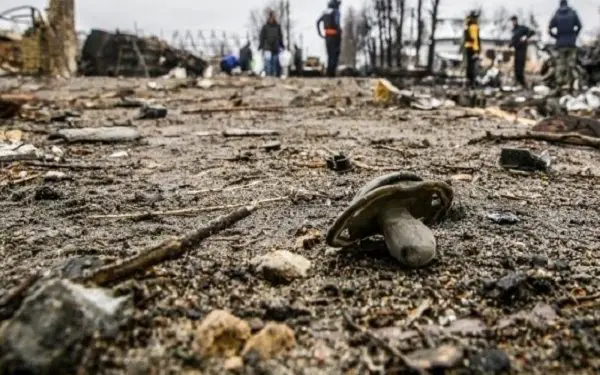Russia’s ambassador to Britain, Andrei Kelin, is not expecting his country to deploy tactical nuclear weapons in the war in Ukraine, which experts believe could drag on for a long time, transmits MIA.
According to Russian military rules, this would only happen when Russia’s existence is threatened, Kelin said in a BBC interview broadcast on Sunday. “It has nothing to do with the current operation,” Kelin said. Moscow refers to its invasion of Ukraine as a “special military operation.”
Asked whether President Vladimir Putin would consider attacking Britain with nuclear weapons in case of an expansion of the war, the ambassador rejected this. This and other scenarios had been publicly discussed on Russian state television several weeks ago.
When shown evidence of Russian war crimes committed in Ukraine, Kelin repeatedly denied Moscow’s responsibility for them. “Nothing is happening, no bodies are on the street,” he said when asked about the atrocities committed in the Kiev suburb of Bucha, where hundreds of bodies were found after Russian troops withdrew in early April.
“In our view it is a fabrication. It is used just to interrupt negotiations,” Kelin said.
During the interview, the Russian ambassador also repeatedly accused Ukraine of killing civilians in the eastern Donbass region. Earlier on Sunday, British intelligence charged that Russia was fabricating narratives about the war in Ukraine to muddle the public’s understanding of the conflict. Moscow has “demonstrated it is prepared to leverage global food security for its own political aim and then present itself as the reasonable actor and blame the West for any failure,” Britain’s Ministry of Defence said in its daily Ukraine intelligence update on Sunday.
The ministry cited an incident when Russia had called on Ukraine a few days ago to de-mine the port of Odessa, in the Black Sea, in order for ships carrying food to safely pass through. However, Russia itself has been blocking the export of grain from Ukrainian ports. According to London, the incident was “a core tenet of modern Russian messaging strategy: introducing alternative narratives, however unconvincing, to complicate audiences’ understanding.”
Since the beginning of Russia’s invasion of Ukraine on February 24, the British Ministry of Defence has regularly been publishing an intelligence update on the situation. Moscow has accused London of conducting a targeted disinformation campaign. Meanwhile, experts are pessimistic regarding negotiations to end the war soon. According to German defence expert Carlo Masala, there is currently no reason for Putin to negotiate with Ukraine.
The Russian leader will only begin serious negotiations when he fears he will lose more than he gains by continuing the war, Masala, professor for international politics at the Bundeswehr University in Munich, told dpa. However, currently things are going well for Putin, Masala said.
According to the expert, the Russian armed forces’ recent success in Donbass is due to the lack of heavy weapons on the Ukrainian side, as well as a change in strategy from the Russians, who are pulling their troops together to advance on small sectors of the front. In order for Ukraine’s prospects to improve, the country needs heavy weapons, Masala said, adding that they could change the cost-benefit ratio for Putin.
Negotiations will be extremely difficult, the expert believes, “because Ukraine doesn’t want to give up territory and the Russians don’t want to withdraw from Ukraine.”
“That is why these negotiations will be with us for a long time,” Masala said. “The ceasefires will be very unstable, the fighting will flare up again and again. This is not a process of two or three weeks.”
















